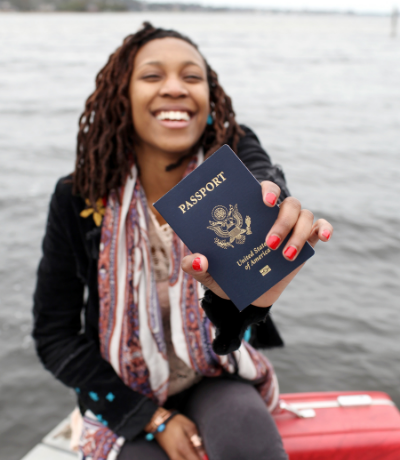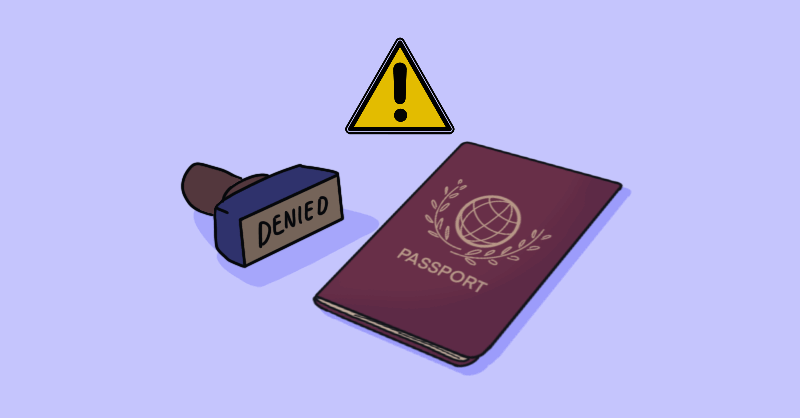Never Make these Passport Mistakes
30 March 2022
Getting turned away at the border when you’re trying to get home is anything but an extended vacation. If you’ve ever experienced one of these situations:
- Your passport is stolen,
- It’s lost somewhere, or
- It expires while you’re abroad
You know that tending to your passport is important.
Don’t laugh about that last one either. Lots of Americans were stuck overseas when the pandemic struck and they couldn’t get home. Their passports expired while they were waiting for COVID tests and vaccines. The US government recently extended the temporary exception allowing American passport holders to return to the US with expired passports until June 30, 2022.
To make sure you never hear a customs officer say you can’t go home, here’s what you should never do to your passport.

1. Don’t wait to renew.
You probably know that most countries require your passport to be valid for at least six months (sometimes longer) to enter their country. This is, at least partly, so that you will have a valid (non expired) passport when you want to leave.
One of the more nit-picky things you may not know is that most destinations require you to have at least two blank passport pages (sometimes more) to be allowed into the country. Some countries require those blank pages to be consecutive. If you’re a frequent traveler, you could run out of blank pages before your passport expires!
Thanks to the pandemic and borders being closed, many travelers tucked their passports into a drawer and forgot about them. Why renew when you can’t go anywhere?
Currently, wait times to get a passport renewed is much longer than they were pre-pandemic. Staffing shortages continue to cause further delays. The US government is now reporting wait times between six and eight weeks and that’s only if everything goes right.
Key takeaway: Start your renewal process when your passport is one year away from expiring.
2. Souvenir stamps are a no-no.
This one was a surprise to us. Souvenir stamps, also called tourist stamps, are apparently a fun novelty item to buy on a trip. Travelers buy them to commemorate their travels or visits to special sites.
In fact, some of these stamps are highly prized by travelers.
The problem is that these stamps invalidate your passport and immigration officers can stop you from boarding the plane. More than one traveler has had to locate their embassy and get a replacement passport to get home because of a souvenir sticker in their passport.
Key takeaway: The only people that get to put a stamp in your passport are official customs officers.
3. Don’t keep passport docs together.
You probably know that a passport card and a passport are very different documents. What you may not know is how useful a passport card can be:
- It can act as your valid ID if you don’t have a driver’s license (helpful if your driver’s license is stolen or lost).
- It allows you to enter land-border crossings and sea ports in Canada, Mexico, the Caribbean and Bermuda.
- It’s inexpensive to get, especially when you’re renewing your passport.
There’s no downside to getting a passport card and a passport—in fact, it’s recommended. What you don’t want to do is keep them together.
If your passport card is stolen or lost, it’s not a big deal. If your passport is lost or stolen, however, a passport card can either get you home (depending on where you’re coming from) or speed up the process of getting a replacement at the embassy.
Key takeaway: Keep these two documents in different places in your bags. If one is stolen, you’ve got the other.
Bonus – one final tip we’ve written about before is to never ink your address or emergency contact into your passport.
Related topics
Damian Tysdal is the founder of CoverTrip, and is a licensed agent for travel insurance (MA 1883287). He believes travel insurance should be easier to understand, and started the first travel insurance blog in 2006.
